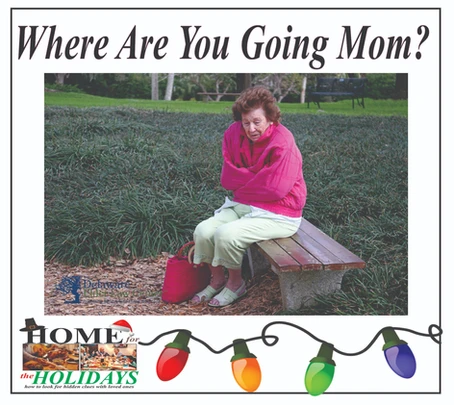Some Dementia patients wander. This behavior is hard to manage for caregivers and can lead to sleep deprivation. I have found that caregivers do not necessarily volunteer that they are sleep deprived by a wandering loved one. If you don’t get to visit much, be vigilant for clues of wandering this holiday season. Some warning signs include pacing in the house, a focus on obligations such as getting to work on time or picking a child up from school and wanting to go home when they are already home. There is a reason a spouse sleeps downstairs in the recliner near the door. Inquire about why this is.
Once a person begins to wander, prepare the house by clearing trip hazards. Distract the person from locating the door somehow. One caregiver found success by wall papering the door to look like the adjoining wall. Place a dark door mat in front of the door. Lock the door and make a habit of keeping the keys out of sight. Place a sliding door lock at the top of the door. Take advantage of technology to keep track of your parents and to give early warning that they are up and about.
Let friends, family, and the neighbors know to be on the lookout for your wandering parent. Look into where to get a bracelet identifying your parent as a dementia patient. Keep a recent close-up photo of your parents to share with the police. Take a picture of their car and license plate. Let the police agency responsible for your neighborhood know that you have a parent with dementia who wanders. It is critical to begin searching immediately for a missing dementia patient. Survival drops to 34% after 24 hours. [1]
~~
[1] “Dementia and Wandering: Causes, Prevention, and Tips You Should Know”, Samuels, Claire, A Place for Mom Website Article, December 12, 2022. The article is very informative. This Blog incorporates several of the author’s observations and facts about wandering.



